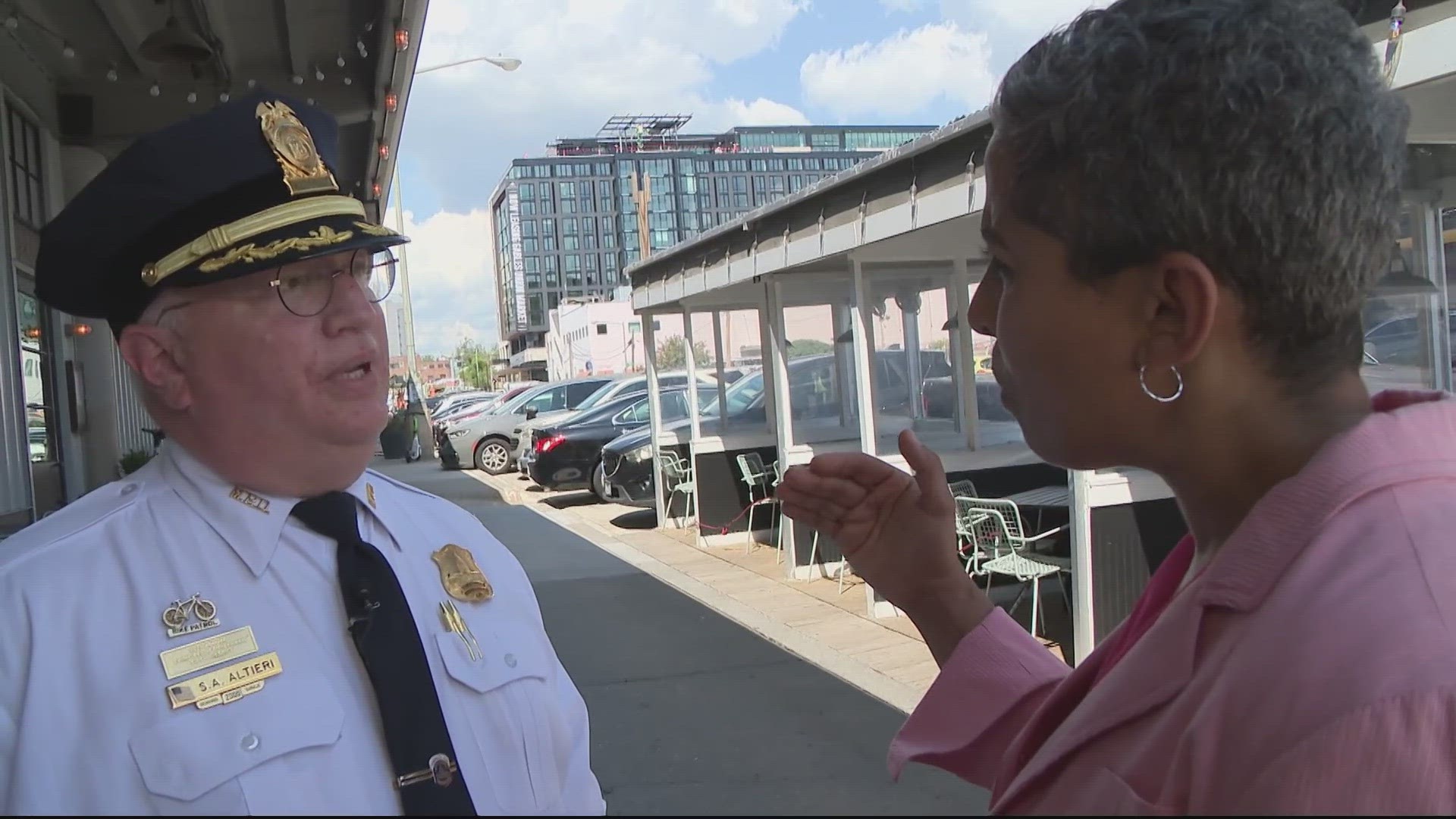WASHINGTON — "Oh God, have mercy!"
A mother's wailing cry became the unintended backdrop to a routine police patrol Monday, after 44-year-old Russell Wiseman was shot and killed in broad daylight in Northeast, D.C. A WUSA9 reporter happened to be walking the beat in Ward 5 with officers as the tragic scene unfolded – a walk that had been months in the making.
Three months ago, D.C. Mayor Muriel Bowser and former Police Chief Robert Contee announced a new "focused policing" strategy to try and mitigate the rising crime rates; Contee described it as a "return to the basics."
"This isn't putting someone in the corner to deter a crime, or officers writing tickets and making arrests," the chief-at-the-time said. "This is about officers getting out of their vehicles and engaging with the community by being problem solvers, talking with community members to identify issues, and checking in with businesses and apartment complexes."
WUSA9's Delia Goncalves had been trying to coordinate a walk-along with community officers, to observe the new policing strategy in action, since the announcement. Witnesses told her that several suspects jumped out of a car and not only shot Wiseman, but stood over him and emptied their gun; 38 evidence markers scattered at the intersection of West Virginia Avenue and Olivet Street serve as a reminder of the brazen crime police are encountering these days.
"Someone in my district lost their life, which is terrible, and as a commander it's a hard thing to live with," Fifth District Commander Commander Sylvan Altieri said.
According to DC Police data, violent crime is up 37% overall in the District, with 151 homicides recorded as of Friday. In Ward 5 where Wiseman was killed, car thefts burglaries and robberies are rising, while homicides, sex abuse and armed assaults have decreased. Altieri credits that focused policing for part of the decline -- citing community officers walking the beat and visiting businesses as a way to build relationships with accountability.
Officers scan a QR code when they make a visit and fill out a form to document any problems encountered or reported during a visit.
"I want people in the community to feel safe to talk to us and feel like we're here to help," Officer Adrenee Williams, a D.C. native, said. "[Right now], the community feels it's unsafe to even walk their dog or walk to their car because they'll get carjacked or robbed."
Officer Willie Gallop, a North Carolinian, has been in D.C. for five years and says it's "still a culture shock" and even believes the city is more dangerous than others he's been in.
Williams reminds residents to always be aware of their surroundings, avoid walking around on your phone, or with headphones on/in your ears.
As far as how safe residents actually feel, and whether the new policing strategies are working, the answers varied neighbor to neighbor.
"I don't have concerns," said one woman who asked to remain anonymous. "I have been lucky enough to live in areas where there is low crime."
"Walking the beat ... none of this stuff addresses the root causes of harm and violent crime," added another woman.
Curtis, the owner of an ice cream shop in Ward 5, believes those in positions of power need to pay more attention to the communities hit hardest by violence.
"There's an outcry for food, money, housing and that's not supplied by police," Curtis said.
Commander Altieri said what he believes focused policing can do is help solve crime by building trust and leaning on those community connections for info.
"Who's driving gun violence? Who's selling drugs? Who's doing things that there's a pattern of violence effecting the community?" he asked. "You try to look at those people and see what they're up to. You want to make sure that's who you're looking at."
Altieri admitted that police departments across the country, including MPD, are still recovering the trust lost from the use of jump out policing.
"[It] was a terrible tactic and served no purpose except to jump out on people on the corner," he said. "When we talk about intelligence-based policing and data, we're not mining for data or anything like that. We're talking about things that are known in the community."
The commander says while MPD is relying on data, policing is about more than just numbers.
"I want to be clear, people are not statistics," Altieri said. "Every number when you look at a crime data chart, that's a person. And again that's a person who's suffering, a person whose family is suffering its tragedy. But we have to look at that to see if what we are doing is being effective in certain areas."
The commander added that a recent revision to the D.C. crime bill had a notable change to the police chase policy, that he believe will help criminals who police see driving around in the same cars. The DC Council said police had a strict interpretation of the law and thought they could never chase. But now, the rewrite makes it clear, and police can pursue cars as long as innocent bystanders won't be hurt in the process.

